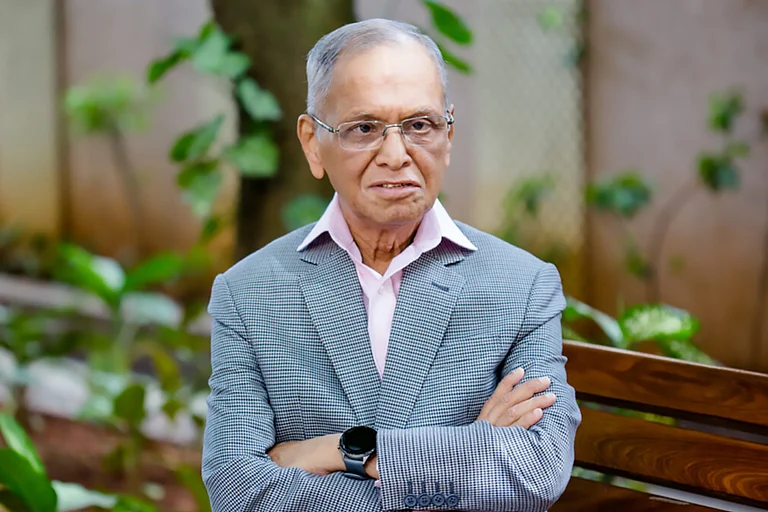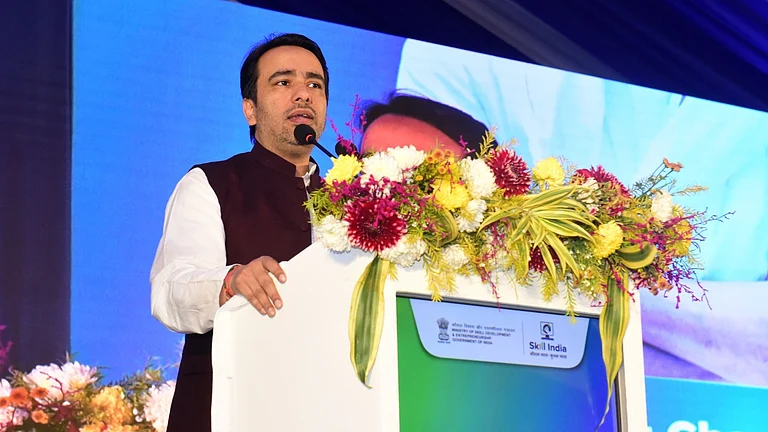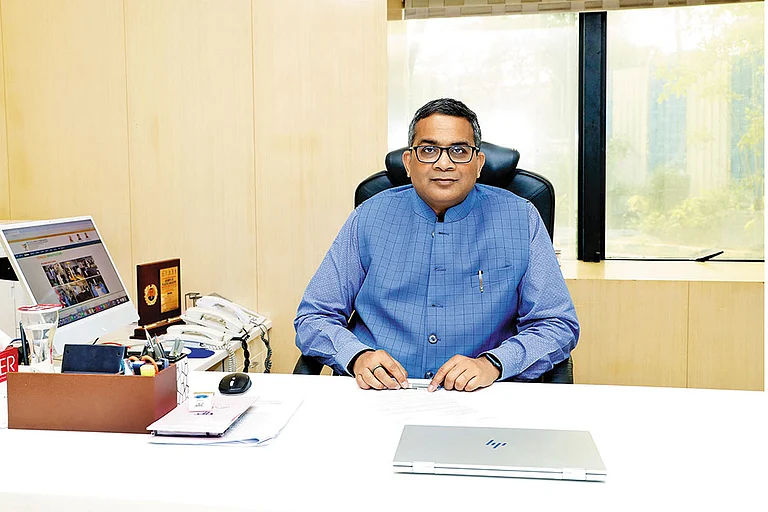Artificial intelligence has become one of the most talked about technologies of today, promising a future of innovation. From healthcare and education to entertainment and sustainability, the new-gen technology is revolutionising every sector as we know it. India's pro-innovation stance, demographic dividend and unique approach to Digital Public Infrastructure (DPI) could lead to extensive AI usage penetration.
Stanford's AI Index Report 2024 suggests that India has the highest penetration of AI skills of any workforce. This report, however, arrives at this result by computing the frequencies of LinkedIn users' self-added skills in a given area from 2015 to 2021. This is not a good indicator of AI skills penetration and other industry reports will confirm that a little over 2,100 people in India have core AI skills. Meta’s chief AI scientist Yann LeCun, one of the foremost experts in AI, at Meta’s Build AI Summit in Bangalore, identified limited research opportunities and drain of talent to other countries as among the main challenges for India to build its own expertise in artificial intelligence. The latter is perhaps a direct result of the former. The International Monetary Fund estimates that almost 40% of global employment is exposed to AI and has their jobs affected in some form or manner due to AI. Thus emerges the question, "Will AI affect my job?" and the answer, quite simply, is yes. Is India ready? That is yet to be seen.
Rewards for the Workforce
Many sceptics of AI have described all AI developments as a bubble and have viewed any development as an opportunity to return to conversations on 'technological unemployment', questioning whether the labour force will be able to match the rapid pace of technological advancements. The earliest occurrence of such a narrative was during the Industrial Revolution when the Luddites rebelled against cotton-spinning machines. In the last 20 years, we have had many such concerns: the advent of the internet in the 2000s is a prime example.
As per Marc Andreessen, general partner of Andreessen Horowitz, the core mistake behind assuming that automation will kill jobs is the ‘lump of labour’ fallacy—the incorrect notion that there is a fixed amount of labour to be done in the economy at any given time, and either machine does it, or people do it—and if machines do it, there will be no work for people to do. But we have evolved with the wheel of innovation, and today, with newer technology, there are always newer things to do, jobs that never existed before. On the other hand, many experts and studies have found evidence that AI will be a positive workforce disruptor. I like to think of this as combining two complementary tenets to revolutionise the workforce.
The adoption of AI by employees has been in the works for some time, but the launch of LLMs [large language models] like ChatGPT has brought even the late adopters on board. A recent survey by Microsoft and LinkedIn revealed that three out of four people already use AI at work. And the reason is relatively straightforward: AI helps the workforce. The same survey revealed that 90% of the respondents agreed that AI helps them save time and focus on their most important work. In India, 75% of the workforce perceives the impact of AI on work as a positive change, the highest of any country.
AI is becoming a great leveller. Research has revealed that employees with the lowest initial ability reap the highest benefits from AI. Bad writers see a boost in their writing ability, creativity increases and low-performing employees see the most significant jump in productivity. By democratising skills, AI is providing everyone with the opportunity to be an excellent worker.
New Jobs in the Making
Through India's 'AI for All' approach, AI will add around 20mn jobs to the Indian economy by 2025. Such outcomes are expected, especially when we take note of job profiles such as SEO [search engine optimisation] specialists, social media managers and web developers that only existed after the rise of the internet.
As per Sam Altman, chief executive of OpenAI, the demand for some jobs may reduce due to the higher potential of automation and the demand for AI-related jobs will grow exponentially. Job profiles like machine learning specialists, security analysts, data specialists, AI developers, interface and interaction designers, AI content creators, data curators and AI ethics and governance specialists are becoming the need of the hour. He also anticipates that AI will change the functioning of many jobs. Ethan Mollick, co-director of Generative AI Lab at the Wharton School, in his book Co-intelligence: Living and Working with AI discusses a recent study which supports this argument, finding that over 950 professions will witness an overlap with the use of AI.
The challenge that arises here is the skilling gap between imparted knowledge and in-demand knowledge. This is where the complementarity of the two tenets comes in. The ability of AI to democratise skills is one of the ways employees are overcoming this challenge. This is supplemented with initiatives undertaken by Indian policymakers to ensure an AI-ready workforce.
For instance, the National Programme on Technology Enhanced Learning (NPTEL) has emerged as one of the world's biggest repositories of technical courses. MeitY [ministry of electronics and information technology] and Nasscom’s Futureskills programme provides a learning system enriched with free and paid content, assessments and virtual labs to reskill 2mn professionals, potential employees and students over five years. Private organisations like Microsoft have launched initiatives like ADVANTA(I)GE INDIA, which aims to provide 2mn people in India with AI skilling opportunities by 2025. Under its ai360 approach, Wipro has started upskilling 220k employees with artificial intelligence tools. Such synergistic efforts of the private and public sectors create an ecosystem where India will surely bridge the skilling gap.
This becomes crucial as employers turn to candidates with high AI exposure. The Economic Survey 2023-2024 estimated that only 51% of Indian youth have the required skills needed for employability. While Indian companies look to grow and challenge multinational companies, the majority of our youth lack the technical skills to be an asset in this endeavour. Some drawbacks include a need for a better command of English and critical reasoning skills and practising on-the-job skills. AI can be the solution to all of these challenges as it augments the candidates' writing, analysis and reasoning abilities and makes them more employable. A recent LinkedIn survey shows that 66% of employers would not hire someone without AI skills. Over the past eight years, hiring talent with technical AI skills has increased by 328%. This has allowed early-in-career individuals to break the glass ceiling and gain greater responsibilities due to AI-adeptness, making AI an equaliser.
One thing is clear: AI is here to stay. AI will lead to job losses, the same way computers led to job losses for typists. While this may cause some upheaval in the short run for employees, with the right policies, AI promises to transform the way we work. In India, we need to actively support and incentivise research, both private and government-led, in AI, to ensure that our talent does not have to move to other countries for opportunities.
To state Amara's law, "We tend to overestimate the effect of a technology in the short run and underestimate the effect in the long run." With India's commitment to lead the AI ecosystem and the immense potential of our population, it is we who hold the agency to shape the future of work.
The writer is the founder and CEO of Vahan.ai. Views expressed are personal.


























